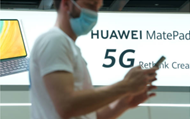Corruption in Brussels: The Huawei Case
24 April 2025 /
Emma Zanoni 3 min

Brussels, the heart of the European Union, has always been seen as the fortress of rule of law, transparency, and democratic governance. Yet, recent revelations around alleged corruption involving the Chinese technology giant Huawei and 15 current and former MEPs, to which bribes were paid for defending Huawei’s lobby positions. Big tech has been under extreme pressure in Europe due to concerns over its products, particularly 5G, and for its close ties to the Chinese government and the fear over its use of espionage. This case echoed the 2022 Qatargate corruption scandal and has raised concerns about how resilient Europe’s political system is to foreign influence and lobbying practices.
Lobbying vs Corruption
Lobbying is a legitimate and regulated practice in Brussels. Thousands of interest groups, including civil society and multinationals, seek to influence European legislation and public decisions to achieve their preferred outcomes. This can take the form of direct contact with policymakers or an indirect form with publications and events. However, the line between advocacy and corruption can blur when transparency lacks.
The European Union (EU) has made progress in tightening ethics with the Transparency Register and the Code of Conduct. These rules are for lawmakers and specify that it is forbidden for MEPs to “solicit, accept or receive any direct or indirect benefit or reward, in exchange for specific behaviour in the scope of Parliamentary work”. Nonetheless, their enforcement remains mainly spotty. Think tanks and observatory organisations have already pointed out the failure of lobby monitoring, transparency, and ethics enforcement. The Huawei case has raised alarms about how easily powerful actors can penetrate the EU decision-making process.
Vulnerabilities in the EU bubble
The so-called EU bubble, the ecosystem of politicians, lobbyists, consultants and think-tanks that populate Brussels, is both a hub of political activity and a potential fertile environment for influence-peddling. With three main institutions involved in the legislative process, the European Commission, the European Parliament and the Council of the European Union, oversight over corruption is complicated.
Despite the EU’s Transparency Register representing a step in the right direction, listing all the interest representatives who seek to influence EU policy, it does not fully cover all EU institutions, and many lobbying activities remain opaque. Moreover, there is no independent body with investigative power that could effectively monitor possible misconduct within the EU institutions. Furthermore, the Register remains voluntary for some actors, which is why it is not as rigorous as national lobbying registries, allowing some actors to operate in grey zones. But when these “strategic advices” offered by lobbyists and consultancies are funded by foreign states or powerful multinational corporations, the potential for improper influence becomes a reality.
These vulnerabilities are particularly alarming now, in the context of geopolitical competition. Authoritarian and powerful regimes seek to undermine the EU’s unity, pushing their agendas and interests, exploiting the gaps in Brussels’ transparency framework. The Huawei and Qatar cases are just two examples of how these actors try to gain access to policymakers, shape narratives and sway decisions for their advantage.
To preserve its democratic nature and credibility, Europe needs to strengthen transparency, harmonise integrity rules across institutions and establish a forceful independent oversight body. The upcoming June 2025 review of the EU Lobby Register presents an urgent opportunity to introduce long overdue, legally-binding rules, ensuring transparency and accountability in Brussels’ corridors of power, with meaningful sanctions for infractions. Furthermore, further control on third-country representatives would be necessary if their interests might conflict with Europe’s values.
The Huawei case is more than a hot headline. It is a mirror of what is happening in Europe. It reflects its vulnerabilities in transparency and accountability, putting at risk one of the most advanced political systems. As the EU continues to project its values abroad, it is necessary to turn them inward and confront the reality that in Brussels, there is corruption, and that is everyone’s problem.
Emma Zanoni is a Master student at the Université Libre de Bruxelles
